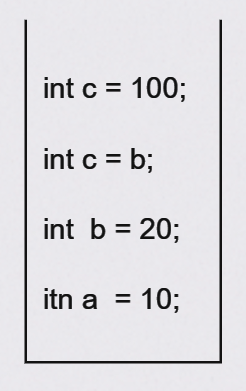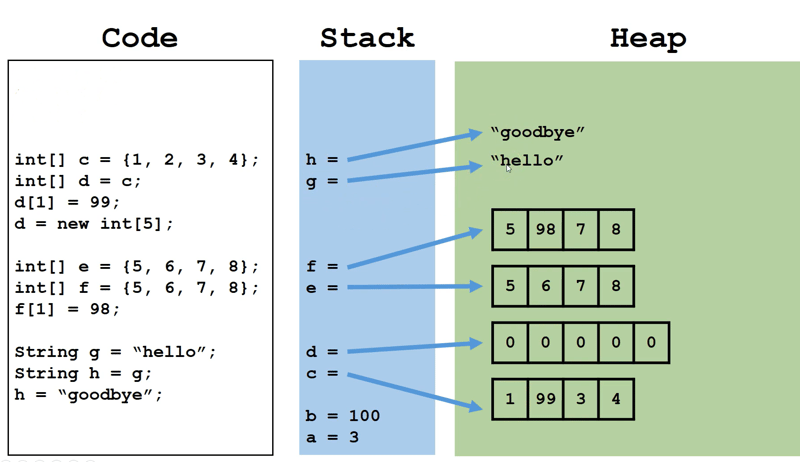Memory Handling in Java

Atul Kushwaha
Posted on March 4, 2024

Before diving into memory management of java one must know java has primitive datatypes and more complex objects (reference types)
- Primitive type
- refference type
Java has no concept of pointers and java only has pass by value, there is nothing like pass by reference in java
primitives
- Primitive types are the basic data types provided by a programming language.
- They are the simplest and most fundamental building blocks of data. In Java, the primitive types include:
-
Integral Types:
- byte: 8-bit signed integer
- short: 16-bit signed integer
- int: 32-bit signed integer -long: 64-bit signed integer
-
Floating-Point Types:
- float: 32-bit floating-point
- double: 64-bit floating-point
-
Characters:
- char: 16-bit Unicode character
-
Boolean:
- boolean: Represents true or false.
Reference type
- Reference types are more complex and are used to store references (memory addresses) to objects. Objects are instances of classes or arrays. In Java, reference types include:
- Objects:
- Instances of classes created using the new keyword.
- Arrays:
- Ordered collections of elements.
- Interfaces:
- Types representing a contract for classes to implement.
How primitives are stored ?
- All data for primitive type variables is stored on the stack
- when setting a primitive type variable equal to another primitive type variable, a copy of value is made.
int a = 10;
int b = 20;
int c = b;
int c = 100;
int a = 10; -> int 10 is stored on stack memory
int b = 20; -> int 20 is stored on stack memory
int c = b; -> value of b(20) is copied to c
int c = 100; -> value of c is modified to 100
How Reference type stores value ?
- For reference types, the stack holds a pointer to the object on the heap memory
- When setting a reference type variable equal to another reference type variabel, a copy of only the pointer is made
- Certain object types can't be manipulated on the heap(immutables)
- int[ ] c = {1,2,3,4}; -> creates an array of integers in the heap memory and stack has a reference to that objetc in heap
- int[ ] d = c; -> value of reference(stored in stack) is copied from variable c(stack) to variable d(stack), no new object is cretaed in the heap memory (and not the actual object)
d[1] = 99; -> value of object at index 1 is changed by variable d, which had reference of object {1,2,3,4,5} hence value is also changed for variable c, as they were having the same reference in the stack memory
- d = new int[5]; -> a new array is created in th heap memory and d rerences to that new array
- int[ ] e = {5,6,7,8} -> creates a new array in heap memory
int [ ] f = {5,6,7,8} -> also creates a new array in the heap although content of array
eandfis same still the exist in various memory spacef[1] = 99 -> this would only change index at 1 position for array
fand not for arraye
- String g = "hello"; -> a new string with value "hello" is created in the heap memory
- String h = g; -> value of reference stored in stack memory is copied form
gtoh(and not the actual object object)
h = "goodbye"; -> you might be expecting that the value of string
gshould also have been changed as bothgandhare pointing at same string, but as Strings areimmutablemeaning they can't be modified, so instead a new string "goodbye" is cretaed and it's reference is assigned tohandgstill points to hello

Posted on March 4, 2024
Join Our Newsletter. No Spam, Only the good stuff.
Sign up to receive the latest update from our blog.



